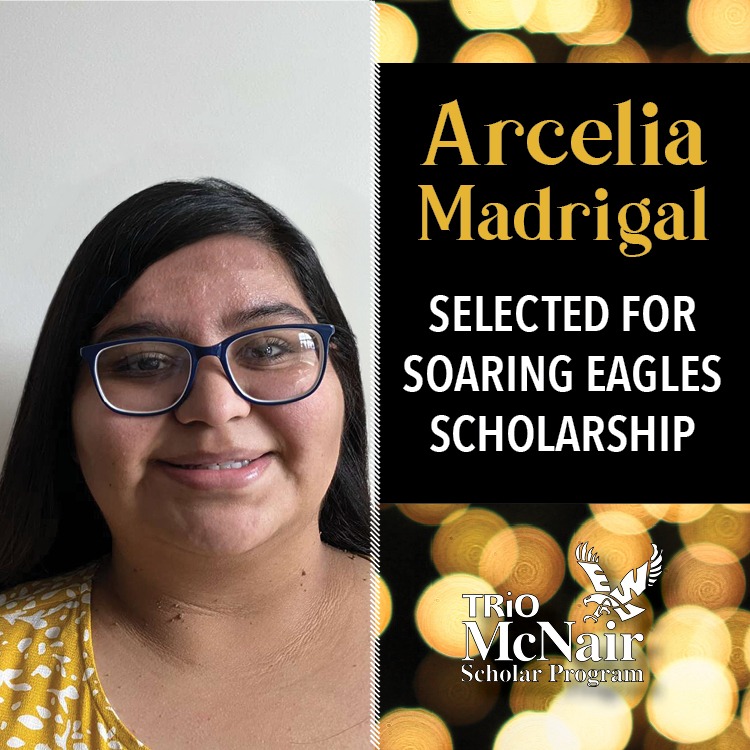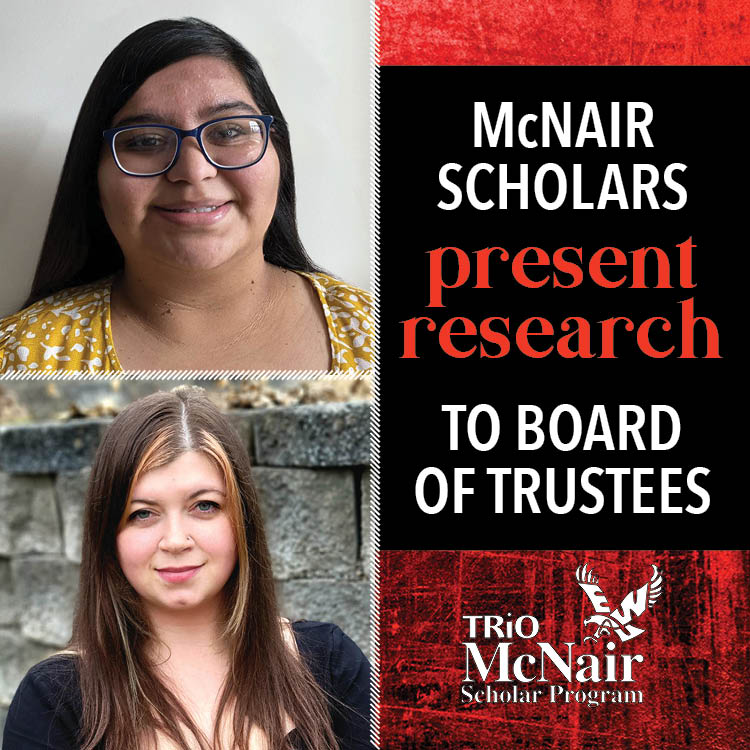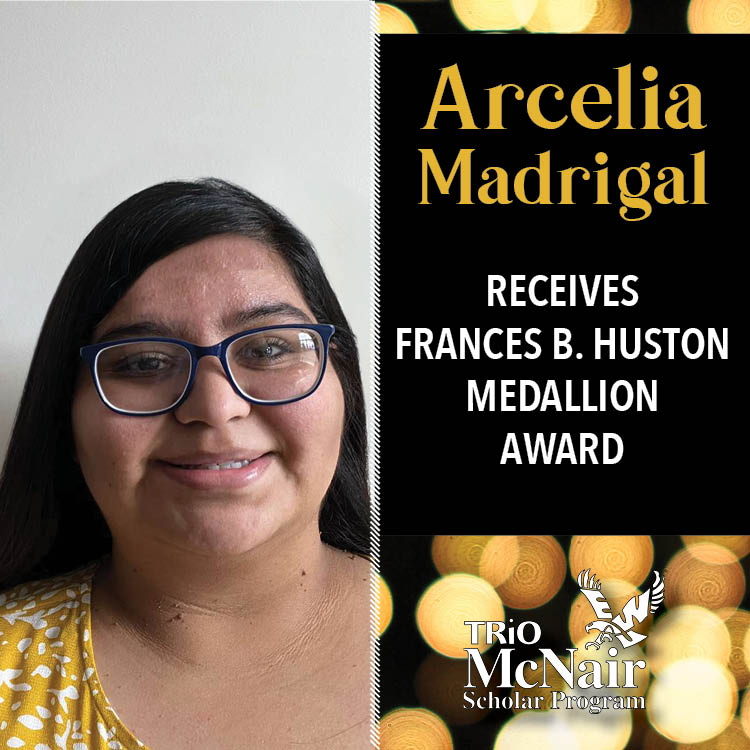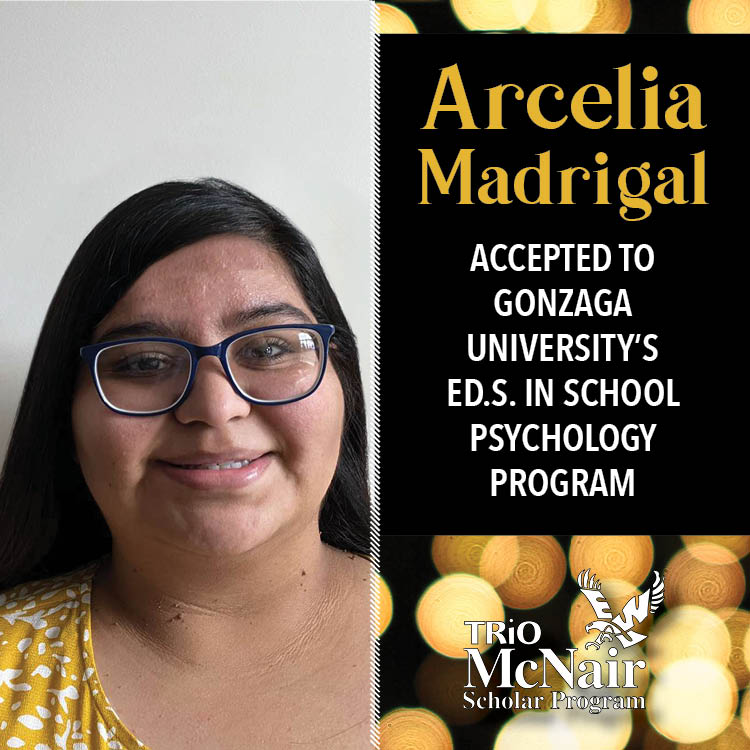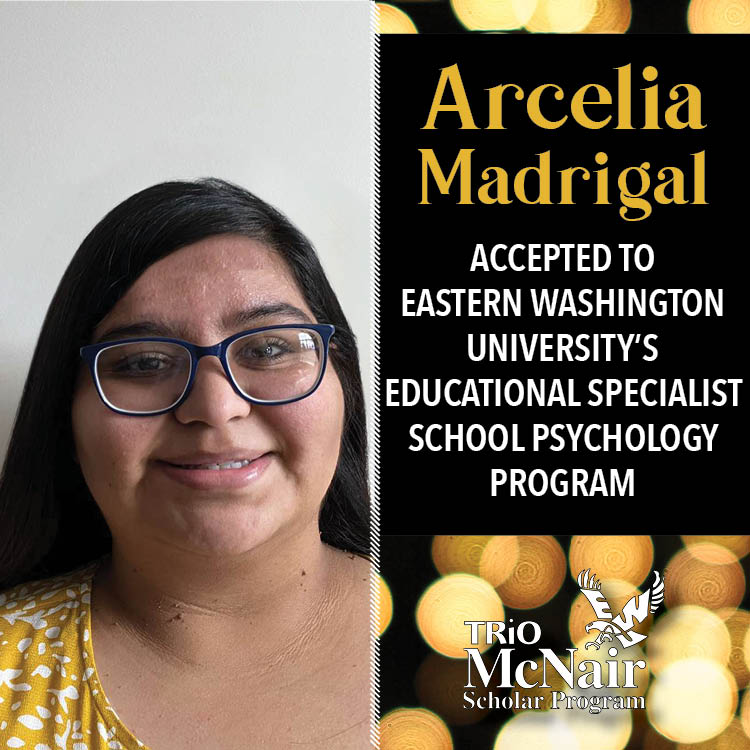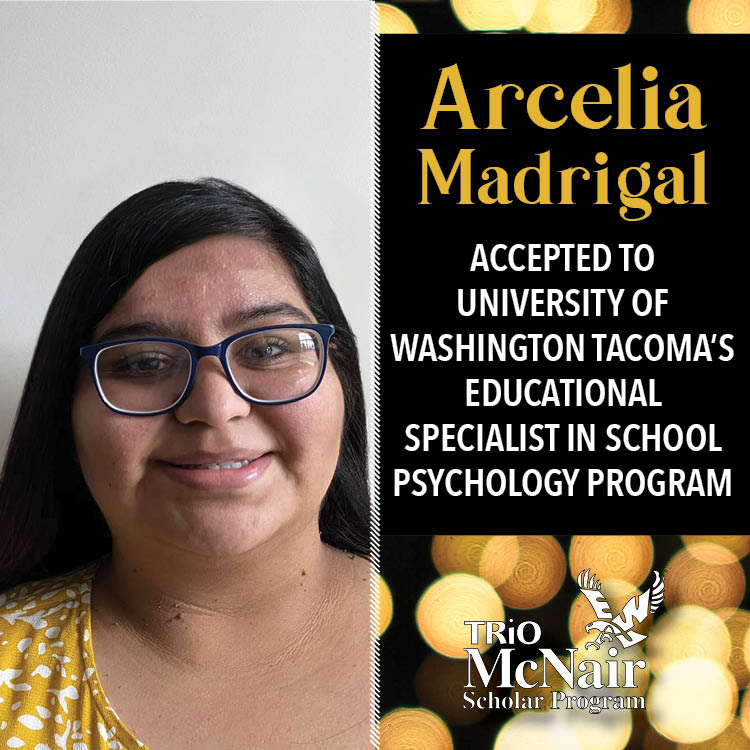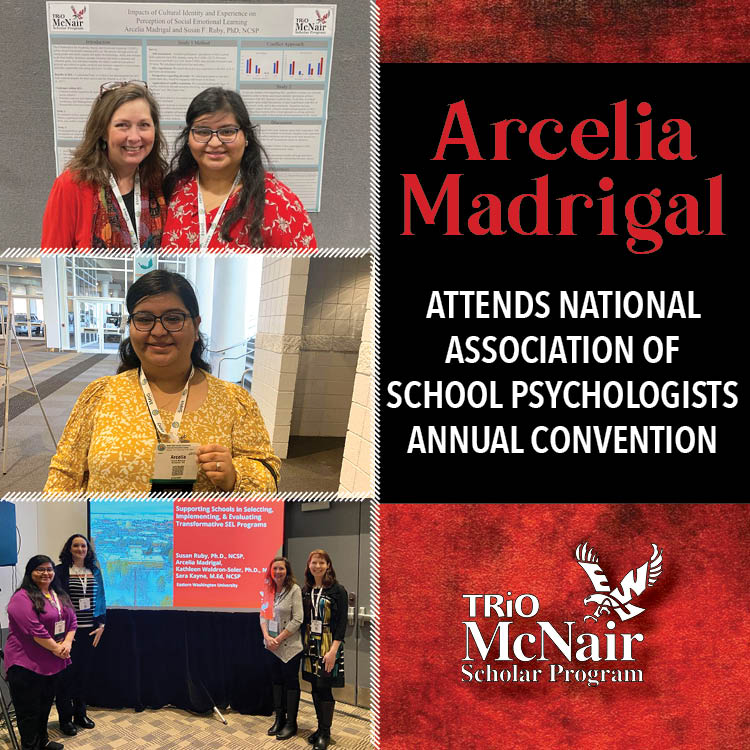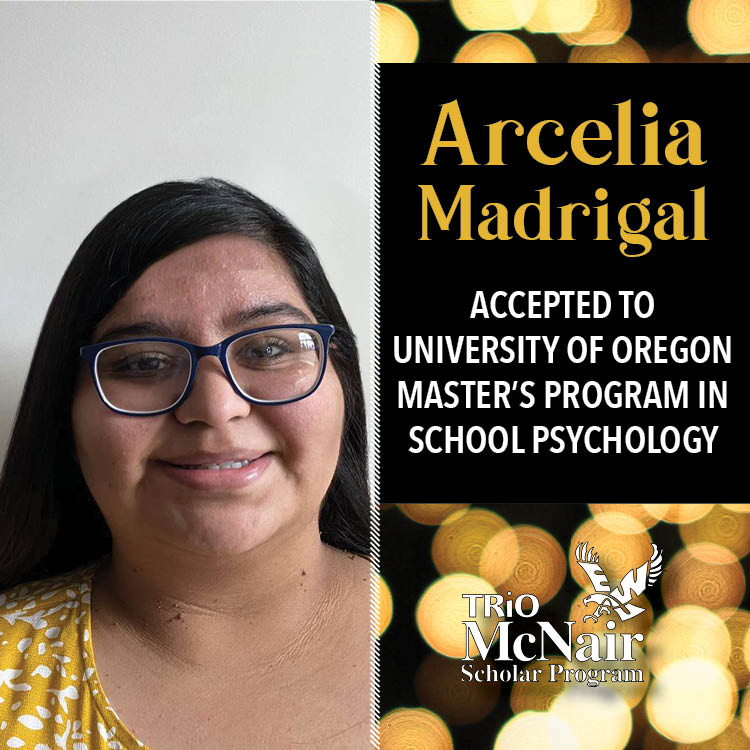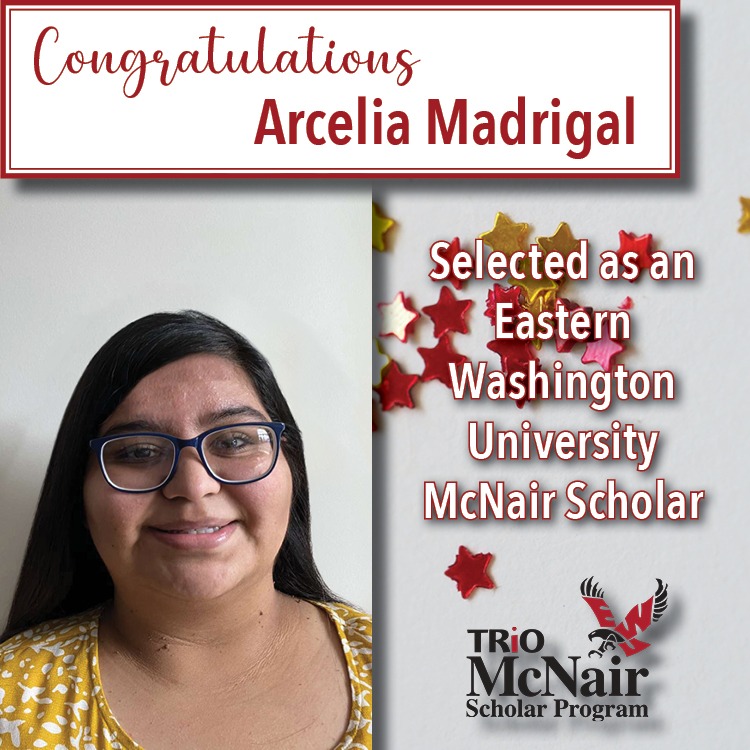Arcelia Madrigal
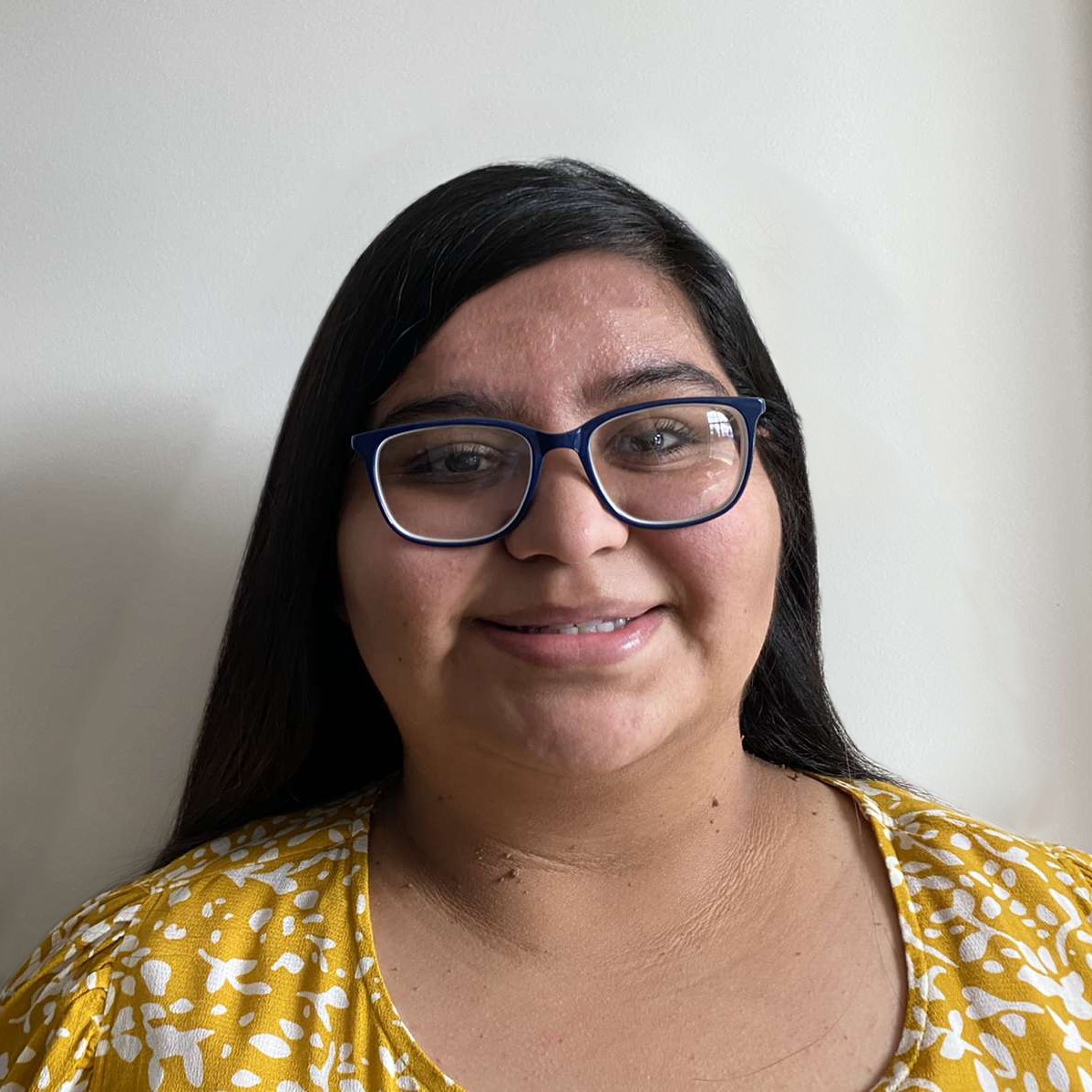
Arcelia Madrigal, a first-generation college student, graduated from Eastern Washington University in Spring 2023 with a BA in Psychology and a minor in Special Education, as well as a certificate in Social Emotional Learning for Educational Equity. At EWU, Arcelia received the Frances B. Huston Medallion Award and the Soaring Eagles Scholarship.
Arcelia is also the Vice President of Eastern Washington’s Psi Chi chapter and an active member of Eagle Ambassador. She is interested in a career in early education school psychology to help ensure educational equity for all students. Her research interests consist of how stereotype bias and cultural identity play into achievement test results and how they present in the educational setting. Arcelia’s research this summer will be on Cultural Experience and Perception of Social Emotional Learning with mentor Dr. Susan Ruby.
Arcelia was accepted to Gonzaga University‘s Ed Specialist School Psychology Program, Eastern Washington University‘s Educational Specialist School Psychology Program (EdS), and the University of Oregon‘s Master’s Program in School Psychology. She will attend the University of Washington Tacoma‘s Educational Specialist in School Psychology Program (EdS).
2022 EWU Faculty Research Mentor: Dr. Susan Ruby
Title: Cultural Experience and Perception of Social Emotional Learning
Abstract: Cultural identity plays a significant role in experiences with social-emotional learning (SEL). Students across culturally and linguistically diverse backgrounds might differ in experiences that impact their perception and application of SEL. This study focused on the relationship between SEL experience, cultural identity, and perception of SEL. I distributed a survey to college students at a regional comprehensive institution. Participants completed a self-assessment and reported their previous and current exposure to SEL at school and home. Participants also answered questions surrounding diversity and worked through scenario questions to demonstrate their preferred way to deal with conflict. I am seeking to understand how experiences with SEL and cultural identity influence students’ perceptions and skills for SEL. I predict that participants with different cultural identities will vary in their self-ratings of specific SEL skills. I expect participants will report minimal experience with SEL at school and home. I expect that those reporting less experience will choose extreme options to resolve conflict. My survey will be open to participants for the fall quarter. My findings may assist educators in taking a cultural perspective so that SEL may expand the standards and framework of implementation to meet the need of all students.
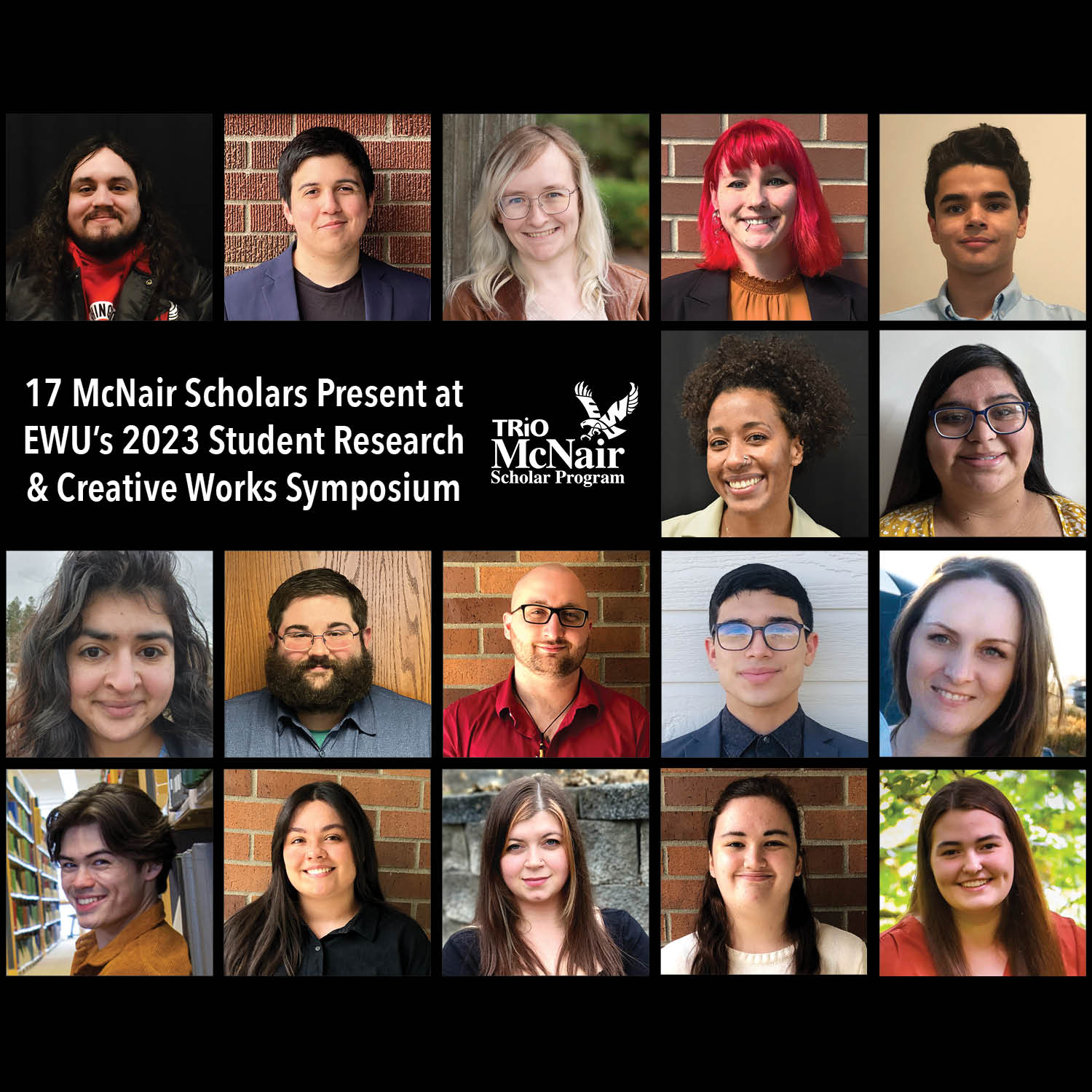
17 McNair Scholars Present at EWU’s 2023 Student Research & Creative Works Symposium
